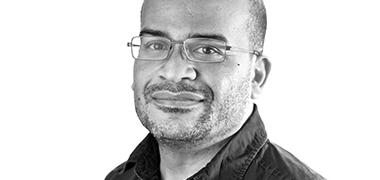We are celebrating the 10-year anniversary of Debats d’Educació by giving the educational community the opportunity to air its views

I am Miquel Àngel Essomba. I am passionate about education because I believe that it is a wonderful opportunity for our society to build more democracy, social cohesion and justice, and that is why I have worked in all aspects and levels of education. In recent years, my career is in the university, where I lead a research group ERDISC (@ ERDISC_UAB). Since 2011, I also handle the SIRIUS network about policies for education and immigration within the European Union, promoted by the European Commission.
The three things I’ve learned
Collaborate to change education or change education to collaborate?
We must ask what the end is and what the means are. In my opinion, the educational change is not the end in itself, but an opportunity to improve educational projects. One of the objectives of these projects must be to learn a vital attitude and a collaborating learning style. In social sciences, all of the prominent developmental theories (Vigotsky, Gardner, the UNESCO Delors Report...) state the need to learn to collaborate as a current and future social need, and propose the creation of spaces to facilitate such learning, given that we are not born with such knowledge. Our educational tradition is greatly lacking in the field of collaboration, and that is why everything in education must be changed (the methodology, scenarios, perspectives, etc.) to create favorable conditions for collaboration such as practical reality, courage and organizational principle.
In a complex society, does the key to collaboration lie in whom or in how?
Our educational tradition pushes us to focus more on the collaboration agents and less on the quality of the relationship established among these agents. We accept the framework of a communitarian education, of shared responsibility in territorial education, of the so-called network, active participation, educational contexts such as learning communities and learning-service methodologies. Even so, we dive into the launching of all these mechanisms based on lineal and casual logics that no longer respond to the current needs, with information, communication and decision-making processes comfortably installed in the bureaucratic rationale, impermeable to the structural uncertainties of our times. The rational dynamics of collaboration must be changed in terms of creativity, reflexive analysis, communication and assertive dialogue.
Collaborate or cooperate?
Cooperation is much more demanding that collaboration. Collaboration must be relational dynamics that never looses sight of advancement towards cooperation as the scene for ideal educational relationships. When you cooperate, everyone is essential and the group fails to attain its goal when everyone does not do their part. Cooperation means that no one falls behind; it represents one of the best ways to attend group and collective diversity. Collaboration is not neutral; it could respond to various ideological proposals. We may collaborate to be more competitive in the marketplace, or we could collaborate to build more democratic societies. Independently of whether the prior proposal is truly disjunctgive or conjuntive, those who want a freer and fairer society for its citizens, understand collaboration in education from the standpoint of cooperation because doing so is a guarantee to keep fairness in our sights.















 The texts published on this website are, unless otherwise indicated, covered by the Creative Commons Spain Attribution 3.0 licence. You may copy, distribute, transmit and adapt the work, provided you attribute it (authorship, journal name, publisher) in the manner specified by the author(s) or licensor(s). The full text of the licence can be consulted here:
The texts published on this website are, unless otherwise indicated, covered by the Creative Commons Spain Attribution 3.0 licence. You may copy, distribute, transmit and adapt the work, provided you attribute it (authorship, journal name, publisher) in the manner specified by the author(s) or licensor(s). The full text of the licence can be consulted here: